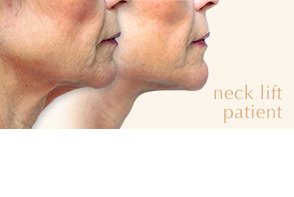Is Age Discrimination Motivating More People to Have Plastic Surgery?

Well over 200,000 Americans had some type of facial plastic surgery last year; more than 3 million underwent a non-surgical aesthetic treatment, such as Botox, fillers, or laser resurfacing. It seems safe to assume that a large percentage of these men and women chose to have a procedure to help them look a few years younger, or at least to help them maintain a more youthful appearance into the future.
What the statistics do not tell us is why these patients feel they would benefit from looking younger. A new study, published in Aesthetic Surgery Journal, suggests that one reason patients may seek anti-aging procedures is in response to—or for fear of—age discrimination. This article in Forbes describes the study and places it in the context of our cultural values of youthfulness to explain why age discrimination occurs and what impact it might have on a person’s well-being.
A patient’s health and individual motivations are the most important factors when deciding whether or not plastic surgery is appropriate. Those who understand both the benefits and limitations of plastic surgery enjoy the most satisfying outcomes.
Is age discrimination harmful to our health—and can plastic surgery help?
The study surveyed 50 plastic surgery patients (94% were female) at a single practice. Participants were asked to rate their experiences on the “Everyday Discrimination Scale,” which measures the type and frequency of discrimination a person encounters.
Over 30% of participants reported having experienced age-based discrimination in a social situation, while 20% said they’d been denied a job or promotion at work due to their older age.
The participants who had experienced age discrimination also reported poorer physical and psychological health and lower self-esteem (the study did not examine whether this is a result of age discrimination or a contributing factor in age discrimination).
A majority of the participants stated a desire to look younger than their actual age as their motivation to have a procedure. However, given the study results—as well as previous research that suggests that attempts to conceal your age can actually cause you to be perceived less favorably by others—researchers wondered whether undergoing a cosmetic procedure would help these patients avoid age discrimination in the future or have the opposite effect.
Ultimately, the study authors concluded that “patients might benefit from expectation management about how their procedure may or may not address their concerns about age-based discrimination.” In other words, plastic surgeons should communicate clearly with patients and ensure they have realistic expectations about the outcome of a procedure. I agree.
What is a healthy reason for plastic surgery?
As a plastic surgeon, I look at the patient’s state of health and their individual motivation to have a procedure. Healthy patients who understand the benefits, risks, and limitations of plastic surgery, and are getting a procedure for personal reasons (versus due to external pressures), enjoy the most satisfying outcomes.
While most of my Asheville facelift, eyelid surgery, and other patients do wish to rejuvenate their appearance, it is out of a desire to correct what they feel is a tired or haggard look, or to correct issues caused by sagging skin, and not to keep up with anyone else’s standards for how young (or old) they should look. By and large, they are very happy with their decision to have plastic surgery.
Age discrimination and the role that plastic surgery may play in alleviating or perhaps perpetuating it are complex issues. I did find the article interesting and encourage you to read it. Additionally, if you have considered plastic surgery, I encourage you to meet with a board certified plastic surgeon to discuss your interest. It is by far the best way to understand what procedure, if any, is appropriate for you.



